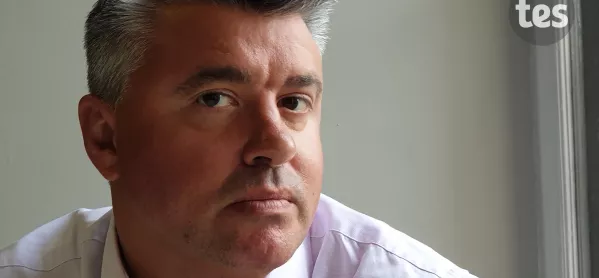A highly critical report on university technical colleges (UTCs) by the National Audit Office (NAO) did not give a “fair assessment” of the programme, according to Simon Connell.
The chief executive of the Baker Dearing Educational Trust (pictured), the organisation behind the UTC movement, described the report as painting a ”glass half empty” picture.
However, he insisted that overall education standards in UTCs were rising – and acknowledged there had been “poor leadership and governance” in the 10 UTCs that have been closed down so far.
The NAO report highlighted concerns about both the standards and financial viability of UTCs, which the Department for Education has spent £792 million on since the programme launched. Ten of the first 58 UTCs have already closed; the 48 that were open at the start of this year were operating at 45 per cent of capacity.
Full story: Half-full and underperforming – damning report on UTCs
Background: DfE to reduce pressure on technical schools over Progress 8
Exclusive: UTC to shut ahead of Ofsted report
The NAO also highlighted the Department for Education's concerns about the financial viability of 13 UTCs this year. Just 52 per cent of UTCs were rated as either "good" or "outstanding" at the start of the academic year, compared with 76 per cent of all secondary schools.
'Easy to criticise' UTCs
However, Mr Connell told Tes that the report had failed to take into account the views of employers and students: “I don’t think it’s a fair assessment at all.”
He added: “The report is very factual, it has very few recommendations. My recommendation would be: go and talk to the employers, see what they say about the programme. Go and talk to the 32,000 young people who have been through [UTCs]. I know what they are going to say.
“It’s very easy to criticise initiatives. All initiatives take risk. Some take time to work. But is doing nothing a better solution? I don’t think it is.”
Mr Connell said that, by its very nature, technical education was more expensive to deliver than its academic equivalent: “It doesn’t take a genius to work out it costs more. It’s a longer school day, there’s more to fit in, there’s technical equipment, there’s technicians, certain buildings, [low] class sizes for health and safety reasons – it costs more. If you get the same [rate of] funding as everyone else, the numbers aren’t going to add up.”
NAO report 'churlish'
He also criticised the NAO for failing to acknowledge the rising standards in UTCs. “It was a little bit churlish of the NAO to not say things are improving education-wise,” he told Tes. “Our Ofsted track record last year was pretty good. I’ll say that in the context of the previous year, it wasn’t. We’re getting it right. And we're getting it right because Ofsted understands UTCs, UTCs understand Ofsted.
“We’ve worked hard, the Department has helped as well. There’s been a real concerted effort to improve educational outcomes…hat will continue, I’m pretty confident about that.”
Mr Connell also acknowledged the failings in the 10 UTCs that had either closed down or been delicenced by the Baker Dearing Educational Trust.
“They closed because they had too few students,” he said. “The drivers of those were poor education, as judged by Ofsted. Let’s be honest: no self-respecting parent is going to send their child to an 'inadequate' school. If you’re 'inadequate', you’re always going to struggle to recruit.”
Mr Connell continued: “In those cases, at the core of it was poor education provision, but the drivers [were] really poor leadership and governance.”





